The Sustainability in the Food Industry Award, presented by The Shelby Report, honors trailblazers reducing environmental impact, supporting communities, and innovating across the food supply chain. This year, we’re spotlighting nominees in four key categories: Retailer Initiatives (e.g., energy-efficient stores and waste reduction), Vendor & Supply Chain Innovations (e.g., carbon-neutral logistics), Sustainable Workforce (e.g., employee training for green practices), and Collaborative Impact & Industry Leadership (e.g., industry-wide coalitions). These forward-thinking companies and organizations are driving real change in how we grow, package, and deliver food – proving sustainability isn’t just a trend, it’s the future.
Discover this years innovators leading the charge in food industry sustainability – from farm to table.
2025 Sustainability Award Winners
-
 2025 Sustainability in the Food Industry
2025 Sustainability in the Food IndustryNellie’s Clean
Blaine, Washington, Nellie’s Clean
Read MoreNellie’s mission has always been simple – to make cleaning products that work, without making a mess of the planet. The company is committed to innovating with purpose, developing products that are not only effective and safe but also reduce its environmental footprint at every step.
Zero waste by design
Nellie’s doesn’t just talk sustainability – it builds it into every product created. From its Laundry Soda in reusable tins to plastic-free Dish Cubes, Nellie’s packaging is intentionally minimal, recyclable or refillable. The goal moving forward with everything it does? Zero single-use plastic, zero unnecessary waste.
Clean formulations that work
Nellie’s is proof that a business doesn’t need harsh chemicals to get a real clean Its formulations are biodegradable, free from synthetic fragrances, dyes and other known irritants. The company prioritizes plant-based, mineral-derived and hypoallergenic ingredients that deliver serious results – whether washing clothes, dishes or floors.
Long-term vision
Nellie’s is continuously rethinking its processes to close the loop – from sourcing to shipping. Every product is designed to help consumers reduce waste at home and make better, safer choices without compromising on performance. As the company grows, so does its commitment to staying ahead of greenwashing – by creating genuinely sustainable alternatives to everyday cleaning staples.
Innovation that’s customer-driven
Many of Nellie’s best ideas come from listening to customers. Whether it’s the need for a refillable dish soap (Dish Stick) or a plastic-free alternative to laundry pods (Laundry Cubes), the team develops real solutions for real homes.
Nellie’s is more than just clean – it’s a movement toward better habits, better packaging and a better planet.
-
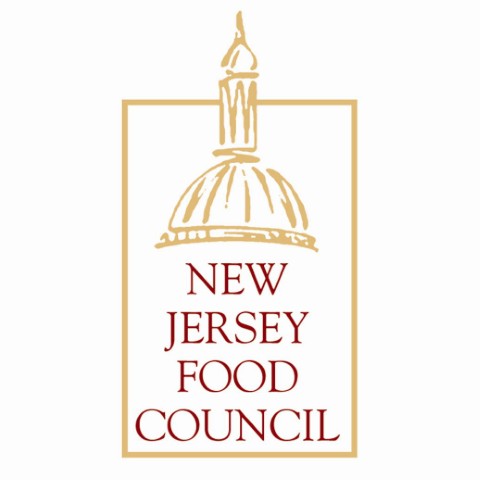 2025 Sustainability in the Food Industry
2025 Sustainability in the Food IndustryNew Jersey Food Council Board of Directors
Trenton, New Jersey, NJFC
Read MoreThree years ago, the New Jersey Food Council Board of Directors endorsed landmark legislation that prohibited the use of single-use plastic and paper bags in grocery stores. It is considered the strongest and most effective single-use bag ban in the nation.
Since the law took effect, the results have been nothing short of amazing as residents no longer see flimsy plastic bags blowing around in parking lots, sitting in neighborhood creeks or stuck in trees.
To date, the New Jersey bag ban has removed more than 24 billion single-use plastic bags, as well as 480 million paper bags. If the amount of avoided single-use plastic and paper bags were placed side by side, they would cover 10 round trips to the moon. Meanwhile, the amount of paper bags saved would wrap the Earth two times.
Environment America, a research and policy group based in Denver, has provided a great tool to help educate New Jerseyans about the intangible benefits of this law. It created a free, open-source calculator, via which local officials and residents can plug in a town’s name to learn how many bags have been saved from the waste stream each year.
As an example, the calculator showed the town of Mahwah has 7.5 million fewer single-use plastic bags each year that are not polluting its environment. In addition, eliminating those bags saved about 38,000 gallons of oil needed to produce them each year. These are incredible environmental benefits, amplified through every New Jersey town marking the same achievement.
NJFC participated with the New Jersey Clean Communities Council to create a statewide Reusable Bag Resource Center through the LitterFreeNJ campaign. The easy online tool helps New Jerseyans donate their gently used reusable bags to those in need. This closed-loop system keeps single-use bags out of its waste stream, while creating a reusable bag donation system for food banks.
New Jersey shoppers routinely bring reusable bags into the store to shop as a habit. It has become increasingly rare for shoppers to forget bags, underscoring the impact of its statewide education program through LitterFreeNJ.
The council is proud of this landmark environmental law, a national example of government, business and shoppers working together to improve the lives of nearly 10 million New Jersey residents. The NJFC Board of Directors recognized the environmental benefit of this innovative law that now serves as a national roadmap for sustainable success on shopping bag policy.
-
 2025 Sustainability in the Food Industry
2025 Sustainability in the Food IndustryOkeanos
Miami Beach, Florida, Okeanos
Read MoreOkeanos is transforming the food packaging industry with its patented Made From Stone technology. This scalable, drop-in solution replaces the majority of petroleum-based plastic resin with naturally abundant calcium carbonate (CaCO₃) in a drop-in compound that can be used on existing plastics manufacturing equipment. By cutting plastic at the source, Okeanos delivers immediate environmental and economic benefits for food manufacturers, brands and consumers.
The measurable impact is significant:
• Plastic reduction – By displacing up to 60 percent of plastic resin, Made From Stone packaging has prevented thousands of metric tons of plastic from entering the waste stream.
• Carbon reduction – Calcium carbonate requires far less energy to process than petroleum-based polymers, reducing CO₂ emissions by as much as 67 percent across key applications.
• Operational efficiency – Manufacturers adopting Made From Stone compounds report energy savings of about 10 percent on processing lines, while maintaining or improving throughput.
• Regulatory alignment – As governments enact stricter packaging laws, Made From Stone helps brands comply seamlessly, bridging the gap between ambitious sustainability targets and operational feasibility.
• Affordable sustainability – Priced lower than virgin resin, ensuring accessibility.
In food applications specifically, Okeanos has partnered with leading dairy and snack producers to scale adoption in bottles, sachets, butter wraps and flow-wrap packaging.
These solutions not only reduce reliance on virgin plastics but also improve recyclability when designed as monomaterial films. Okeanos’ footprint now spans 13 global manufacturing locations, including facilities in Latin America, the Middle East and Asia – regions where plastic pollution and regulatory urgency are at their peak.
By enabling local production, Okeanos reduces transportation emissions while accelerating access to affordable, sustainable packaging. Beyond materials science, Okeanos is committed to education and community impact.
The company invests in industry partnerships and transparent product labeling, powered by dynamic life-cycle analysis (LCA) QR codes, which empower consumers to understand the impacts of their purchasing decisions.
By replacing plastic with stone, Okeanos is redefining what sustainable packaging looks like – offering an immediate, cost-stable and scalable solution that helps the food industry achieve meaningful waste and carbon reduction today.
-
 2025 Sustainability in the Food Industry
2025 Sustainability in the Food IndustryOrganically Grown Company
Portland, Oregon, Organically Grown Company
Read MoreBeing fierce protectors of the organic movement means caring for the planet and Organically Grown Company knows every action matters. That’s why 95 percent of its produce is certified organic, it powers its facilities with renewable energy and pushes for smarter packaging.
OGC is a proud member of the U.S. Food Waste Pact, where it has helped assess waste across the supply chain. The company’s facilities have reached a 93 percent waste diversion rate by keeping materials out of landfills and putting them to better use. Food that can’t be sold to stores is donated to gleaning programs first, then directed to animal feed and composted if no other use is possible.
It also runs a pallet recovery program where pallets from vendors are collected, refurbished when needed and reused or sold. When including pallet recovery, the company’s overall diversion rate rises to 97 percent.
OGC’s main facility in Portland is designed with sustainability in mind. It is cooled with ammonia, equipped with motion-activated high-efficiency LEDs and powered with renewable energy covering 99 percent of electricity use.
It is certified gold level in the Gresham Green Business program. To make sustainable choices easier for its team, the company provides on-site services for hard-to recycle items like batteries and Styrofoam.
Transportation is another area where OGC has long led the way. Its fleet was among the first in the industry to run on biodiesel and a significant portion of its fuel today continues to come from biodiesel and renewable diesel.
OGC also is committed to packaging that’s as thoughtful and earth friendly as the organic produce it holds. That includes potatoes in recyclable and compostable kraft paper sacks, grapes in recyclable kraft paper totes and other solutions to reduce reliance on plastics.
The company’s commitment extends beyond its operations. Through a giving program, it focuses on addressing climate change, improving access to organic food and supporting healthier communities. It also helped launch the Sustainable Food Trade Association and continues to have a strong voice on boards and nonprofits dedicated to advancing sustainable agriculture and resilient food systems.
At OGC, sustainability isn’t an initiative. It is the foundation of how the company does business and the driving force behind everything it grows, ships and shares.
-
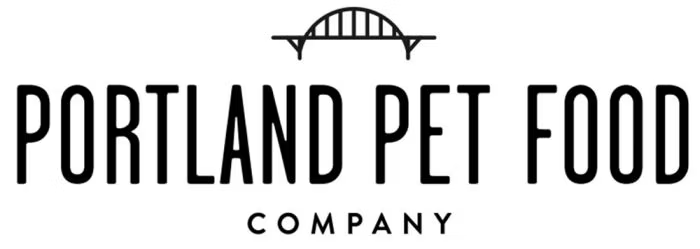 2025 Sustainability in the Food Industry
2025 Sustainability in the Food IndustryPortland Pet Food Company
Portland, Oregon, Portland Pet Food Company
Read MorePortland Pet Food Company's primary elements of sustainability include up-cycling products that would otherwise end up in landfill, helping divert 20 tons of spent grain annually.
The company hosts a free recycling program through TerraCycle and sources as many ingredients locally as possible. In addition, the company empowers its workforce to make sustainable decisions and its pouches enable more efficient shipping, which means helping cut down on CO2 in the process.
-
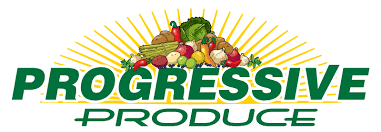 2025 Sustainability in the Food Industry
2025 Sustainability in the Food IndustryProgressive Produce
La Mirada, California, Progressive Produce
Read MoreAt Progressive Produce, sustainability is guided by its Rooted initiative, which focuses on two key pillars – people and planet. These pillars connect the company’s values to measurable actions that enhance employee well-being, reduce waste, conserve resources and strengthen the communities it serves.
People: With 75 percent of its workforce employed full time and an average tenure of 10.35 years, the company’s team is the heart of its business.
Nearly half of the management team (46 percent) is female, reflecting efforts toward gender equity. In 2024, it hosted three companywide health and wellness events and donated 2.64 million pounds of fresh food to support local food banks and nonprofits.
Planet: Progressive Produce has made significant progress in waste reduction and resource efficiency. In 2024, it diverted 21.1 million pounds of food waste, including 18.42 million pounds donated as animal feed.
By delivering 15.41 million pounds of produce directly from the source, the company minimized transit-related emissions while maximizing freshness.
It also focused on environmentally friendly packaging, with more than 90 percent of packaging recyclable or compostable and more than 95 percent of corrugated material made from post-consumer recycled content.
Collective impact: These efforts added up to significant environmental savings. In 2024 alone, Progressive Produce: • Recycled 291.9 tons of cardboard;
• Saved 2,905 trees, 293,000 hours of electricity, 28,000 gallons of oil and 876,000 gallons of water; and
• Processed 547 tons of compostable packaging.
The Rooted initiative shows that sustainability is a team effort. By working alongside employees, growers, customers and community partners, Progressive Produce is creating meaningful change that benefits everyone in the supply chain and beyond.
-
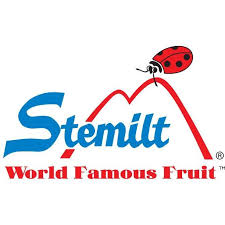 2025 Sustainability in the Food Industry
2025 Sustainability in the Food IndustryStemilt
Wenatchee, Washington, Stemilt
Read MoreStemilt believes the brightest future starts by nurturing people from farm to family. This belief drives its sustainability and social responsibility work, which has deep roots across every level of the company.
In 1989, Stemlit launched its Responsible Choice program to grow high-quality fruit through integrated pest management, environmental sustainability and a strong focus on worker welfare. Since then, it has continued to lead the industry with investments in workplace well-being.
Stemlit’s Integrated Pest Management approach reduces reliance on chemical pesticides, protecting pollinators, ecosystems and the health of farmworkers.
It invests in ongoing training to ensure teams handle materials safely and uses practices that protect both crops and people.
It has IPM certification for more than 130 growers through SQF and is Bee Friendly Certified.
In 2015, Stemlit opened the Stemilt Family Clinic, building on a 20-plus year partnership with Anovaworks to offer on-site health care. In partnership with Confluence Health, the clinic provides free primary care and prescriptions to team members and their families.
It averages 500 visits per month and has a 90 percent prescription fill rate, above the national average of 50 percent. It also achieves a 16 percent higher diabetes control rate compared to regional clinics.
Stemilt is the first company in Washington to earn full Equitable Food Initiative certification across all owned orchards and packing facilities. EFI is a third-party certification of 300 standards for responsible labor, food safety and pest management. It includes training and a framework for cross-functional teams to drive continuous improvement on the job.
Stemlit supports the Ethical Charter on Responsible Labor Practices and recently joined the ECIP Leadership Circle to advance innovation in farm labor. It also is engaging independent growers in the ECIP Lab, with full participation expected soon.
Each year, Stemlit welcomes more than 1,600 H-2A workers, recruited ethically through Cierto. Workers receive pre-arrival training, team-building support and guidance through a “Plan de Vida,” a life plan to align work with long-term goals.
With 96 percent returning annually, Cierto fosters personal success. All workers stay in Stemilt-provided housing and are welcomed with care packages.
The company invests in workforce training, including recent WISHA 10 training for agricultural supervisors. From 2023-24, it reduced workplace accidents by 15 percent.
-
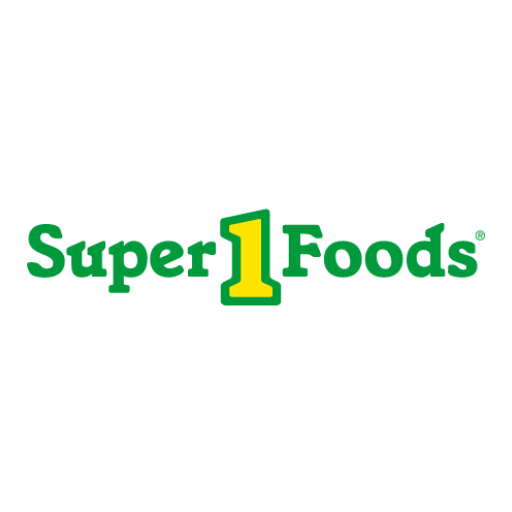 2025 Sustainability in the Food Industry
2025 Sustainability in the Food IndustrySuper One Foods
Hermantown, Minnesota, Super One Foods
Read MoreSuper One Foods is committed to sustainability. All store locations across the company have taken meaningful steps to reduce environmental impact while serving local communities.
The company’s sustainability efforts have included:
- Energy efficiency: Super One is proud to invest in voluntary energy-saving initiatives across all stores. Over the years, it has made significant upgrades, such as installing LED lighting and implementing smart refrigeration systems. The company’s latest investment includes the rollout of air curtain technology, designed to reduce energy use during overnight hours, saving an estimated 60,000 kWh per store each year.
- Recycling and waste reduction: In 2024, nearly 5 million plastic bags were recycled through the Bag2Bag program at Super One stores. Customers can drop off used plastic bags in designated in-store bins, where they are collected and repurposed into composite decking and other useful materials. In addition to bag recycling, Super One also recovers and recycles the shrink wrap used on pallets and incoming shipments, totaling more than 211,780 pounds annually. Each year, more than 9.7 million pounds of cardboard are also recycled, the equivalent of filling 122 semi-trailers. Together, these recycling efforts significantly reduce landfill waste and support more sustainable store operations.
- Food rescue: Super One Foods partners with local nonprofits to ensure surplus food helps feed communities, not landfills. Company-wide, all stores participate in food rescue programs, donating to organizations like Second Harvest Northland and other nonprofits that have community food shelves. Through the partnership with Second Harvest Northland, more than 596,000 pounds of food are rescued each year, enough to provide more than 475,000 meals for those in need.
- Looking ahead: Super One plans to expand energy-saving air curtain installations while continuing to upgrade systems and strengthen its sustainability initiatives. By consistently advancing these efforts, Super One Foods ensures it remains a responsible community partner and environmental steward in the communities it serves for years to come.
-
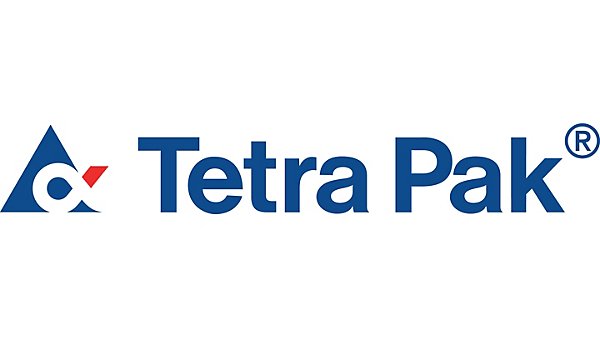 2025 Sustainability in the Food Industry
2025 Sustainability in the Food IndustryTetra Pak U.S. and Canada
Denton, Texas, Tetra Pak
Read MoreTetra Pak U.S. and Canada believes access to safe and nutritious food should be a right – not a privilege – afforded to all.
In 2024, the company focused its efforts on five key areas that are essential to its mission – food systems, circularity, climate, nature and social sustainability. In each of these, Tetra Pak witnessed meaningful growth that continues to inspire hope and fuels momentum.
Food systems are at the heart of Tetra Pak’s sustainability agenda. In 2024, Tetra Pak broke ground on an expansion at its converting factory the Denton, Texas, which will expand capacity to 9.6 billion packs annually.
Tetra Pak was also Expo West’s official waste diversion sponsor, which gave it the opportunity to educate attendees on carton recyclability. Forty-two tons of waste, including cartons, were recycled at the event. Circularity involves collaboration. As a member of the Carton Council, Tetra Pak is supporting a new carton recycling manufacturing facility that will open by the end of 2025 in Lodi, California.
ReCB LLC California will transform post-consumer food and beverage cartons into durable, sustainable building materials and support regional recycling efforts. Once complete, the facility will recycle about 1.5 million pounds of carton packages per month.
Tetra Pak is committed to mitigating climate change by decarbonizing operations, products and its value chain. Tetra Pak continues to operate on 100 percent renewable electricity. In 2024, this offset the equivalent of 14,430 tons of CO2 emissions, which is equal to driving a gasoline car for more than 71 million miles.
During Sustainability Week, Tetra Pak invited employees to bring out-of-use electronic items from home. In total, Tetra Pak collected 6,908 pounds of waste through two e-waste events, preventing valuable materials from going to landfills.
Tetra Pak strives to respect human rights across its operations and value chain, creating positive social impact. For example, the company is committed to increasing the share of women in leadership roles, both locally and globally.
It supports the professional development and appointment of women to leadership positions through a variety of opportunities including its Elevate HER employee resource group, the Society of Women Engineers and Females in Food.
With the anniversary of its Denton campus, Tetra Pak also celebrated 40 years as a strong employer in the North Texas area.
-
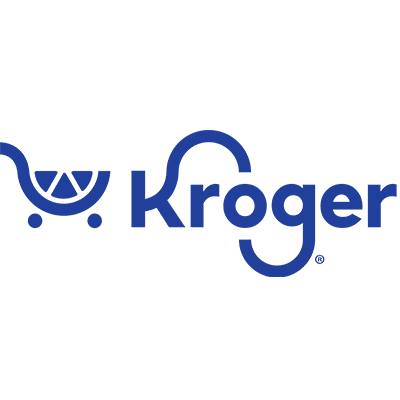 2025 Sustainability in the Food Industry
2025 Sustainability in the Food IndustryThe Kroger Co.
Cincinnati, Ohio, The Kroger Co.
Read MoreKroger is dedicated to its Purpose: To Feed the Human Spirit. The Kroger Family of Companies includes nearly half a million associates who serve more than 11 million customers daily through food inspiration and uplift and creating Zero Hunger | Zero Waste communities.
The Zero Hunger | Zero Waste plan, introduced in 2017, addresses a fundamental absurdity in the food system: Collectively, the country produces more than enough food to feed everyone, yet one in eight Americans still struggle with hunger. Kroger focuses on advancing change through its core business and operating model, strategic charitable giving and coalitions of action with communities to improve food and nutrition security, now and in the future.
Kroger aligns the majority of its charitable giving to national, regional and local organizations and programs that feed people. Since 2017, it has directed more than 3.4 billion meals to communities. This includes work with local food banks and pantries to support innovative food delivery models, including mobile or stationary food pantries that increase access to fresh food. Several years ago, Kroger began aligning more of its total charitable giving to the Zero Hunger | Zero Waste impact plan. This includes cash donations and gift cards, foundation grants, surplus fresh food donations through the Zero Hunger | Zero Waste Food Rescue program and other food and product donations.
At the local level, Kroger’s charitable dollars help Feeding America-affiliated food banks and other nonprofits build capacity to pick up more surplus fresh food from its stores, test and implement new food recovery and delivery models and feed more people. Since 2017, Kroger has directed $1.5 billion in charitable giving to end hunger.
Every Kroger-operated store is linked to a local hunger-relief agency with the capacity to safely pick up and redistribute surplus fresh food. Kroger works closely with the Feeding America network of food banks and other hunger-relief partners to continually improve its food rescue program, expand the number of items eligible for donation and recover more fresh, nutritious food.
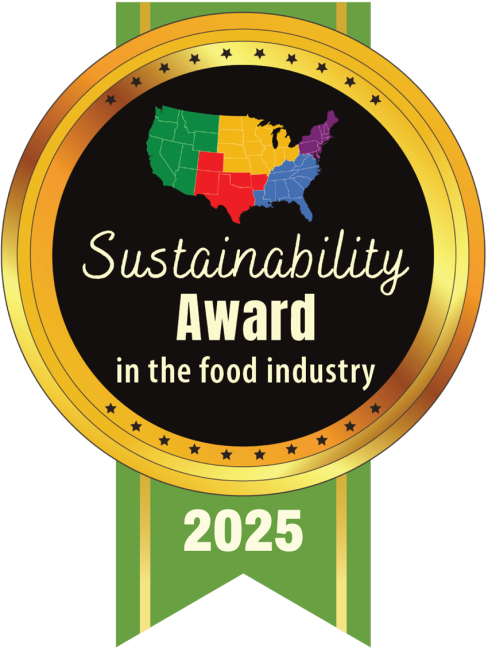
Presented by The Shelby-Griffin Report
The Shelby Report is the grocery industry’s leading news source, serving the food supply chain since 1967. With decades of in-depth journalism and strategic partnerships with NGA and FMI, we are dedicated to educating and informing the industry. We are proud to present this award to honor sustainability leaders.
